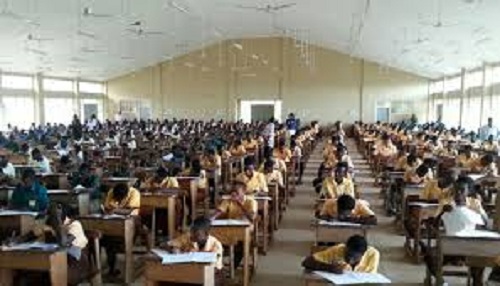
14,698 BECE candidates benefit from the 30 per cent quota policy
A total of 14,698 Basic Education Certificate Examination (BECE) candidates who sat for the 2016 examination have been placed into senior high schools (SHSs) and technical institutes (TIs) under the 30 per cent quota policy.
Under the policy, 30 per cent of the total number of vacancies are to be allocated to students who attended junior high schools within a 10-kilometer radius of the second cycle institution they selected to attend.
The National Coordinator of the Computerised School Selection and Placement System (CSSPS), Mr Kwasi Anokye, who made this known to the Junior Graphic, noted that most of this year’s BECE candidates who took advantage of the policy came from the Central Region.
The candidates, he said, were specifically from Cape Coast, which has some of the well-endowed schools in the country.
Advertisement
The schools include Mfantsipim, Wesley Girls’ High School, St Augustine’s College, Holy Child SHS and the Adisadel College.
The Ashanti and Northern regions which have schools such as Prempeh College, Opoku Ware SHS, St Louis SHS, T.I. Ahmadiyya SHS, Tamale SHS, Ghana Senior High School, followed the Central Region.
“For all the schools in Cape Coast we were able to reserve the 30 per cent quota for them,” he said.
Mr Anokye said the public had been well informed about the policy and it was expected that more students would take advantage of it, adding that as evidence of the reality of the policy, the lists of beneficiaries had been posted at the various schools for people to see.
“We did the 70 per cent on merit but you know, the 30 per cent would not compete on the same scale with them. We have the two lists on the notice boards of all the schools,” he said.
The CSSPS Coordinator attributed the success of this year’s placement exercise to the various interventions and measures that had been put in place by the Ministry of Education and the Ghana Education Service (GES).
That, he said, was in addition to the yearly reviews of the system, pointing out that the fine-tuning process was still ongoing.
“This year, we had a major 10-year review of the system in May. All stakeholders were brought on board. It was realised that most of our problems were because a lot of students chose certain particular schools.
For instance, last year, we put more students in Wesley Girls than they could take and the school resisted. This year, we decided not to do that. We assessed the schools and posted the exact number they can admit,” he said.
So far, Mr Anokye said the feedback from the schools “has been good.”
The support of parents is what we require now’’, he pointed out.
The placement exercise this year has so far has been very smooth. We have not encountered any hitches or major problems. We have placed close to 99 per cent based on the data on the candidates we received from the West African Examinations Council (WAEC). The one per cent is what we are dealing with. Unfortunately, for most of the outstanding students who are yet to be placed, we got their data from WAEC very late even though some of them performed well.
